Simone Weil Quotes
Most popular Simone Weil Quotes

All sins are attempts to fill voids.

To be a hero, one must give an order to oneself.

Beauty always promises, but never gives anything.

The future is made of the same stuff as the present.
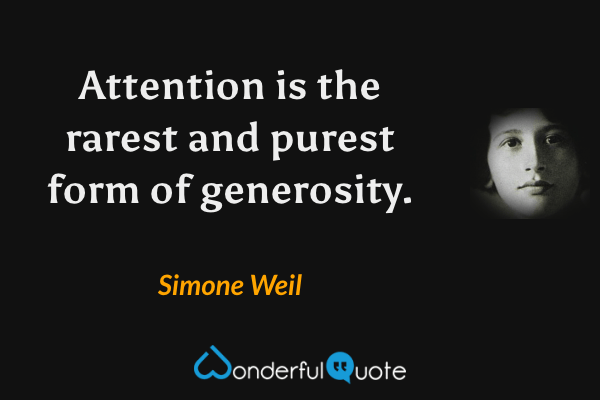
Attention is the rarest and purest form of generosity.

At the very least, a mind enclosed in language is in prison.

Evil being the root of mystery, pain is the root of knowledge.
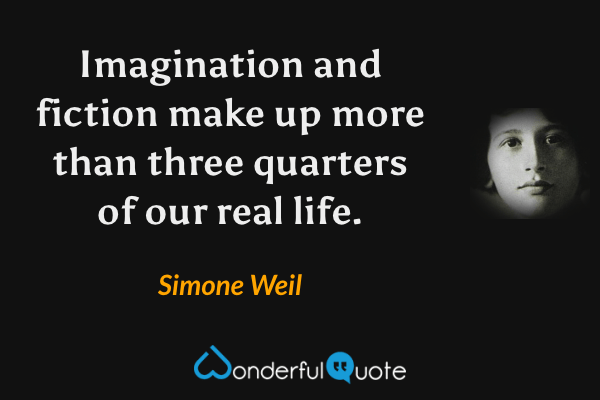
Imagination and fiction make up more than three quarters of our real life.

Friendship ought to be a gratuitous joy, like the joys afforded by art, or life.

Evil when we are in its power is not felt as evil but as a necessity, or even a duty.

To be rooted is perhaps the most important and least recognized need of the human soul.

A hurtful act is the transference to others of the degradation which we bear in ourselves.

Attachment is the great fabricator of illusions; reality can be attained only by someone who is detached.
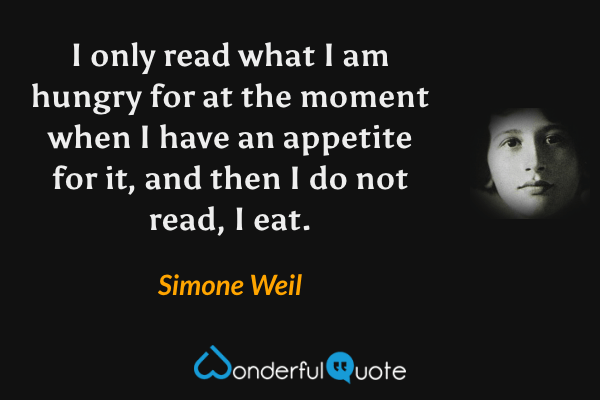
I only read what I am hungry for at the moment when I have an appetite for it, and then I do not read, I eat.
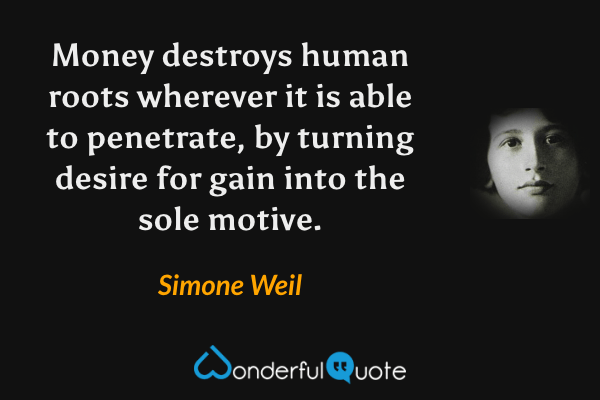
Money destroys human roots wherever it is able to penetrate, by turning desire for gain into the sole motive.

The intelligent man who is proud of his intelligence is like the condemned man who is proud of his large cell.

The intelligent man who is proud of that intelligence is like the condemned man who is proud of his large cell.

Those who are unhappy have no need for anything in this world but people capable of giving them their attention.

The love of our neighbor in all its fullness simply means being able to say to him: "What are you going through?"
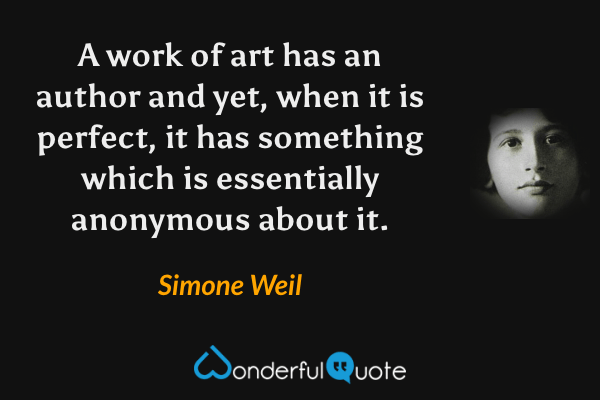
A work of art has an author and yet, when it is perfect, it has something which is essentially anonymous about it.
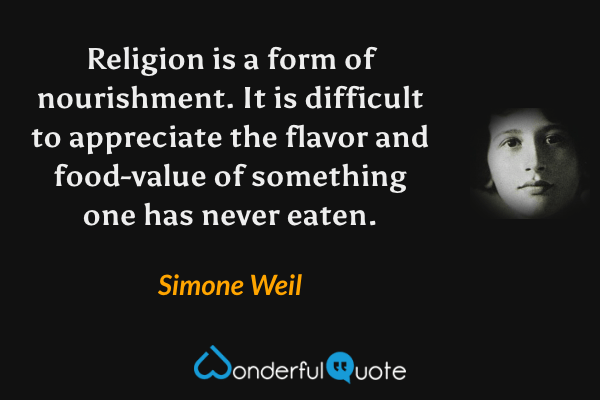
Religion is a form of nourishment. It is difficult to appreciate the flavor and food-value of something one has never eaten.

Misfortunes leave wounds which bleed drop by drop even in sleep; thus little by little they train man by force and dispose him to wisdom in spite of himself.

It may be that vice, depravity, and crime are nearly always, or even perhaps always, in their essence, attempts to eat beauty, to eat what we should only look at.

I would suggest that barbarism be considered as a permanent and universal human characteristic which becomes more and less pronounced according to the play of circumstances.

We cannot take a single step toward heaven. It is not in our power to travel in a vertical direction. If however we look heavenward for a long time, God comes and takes us up.

Our science is like a store filled with the most subtle intellectual devices for solving the most complex problems, and yet we are almost incapable of applying the elementary principles of rational thought.


